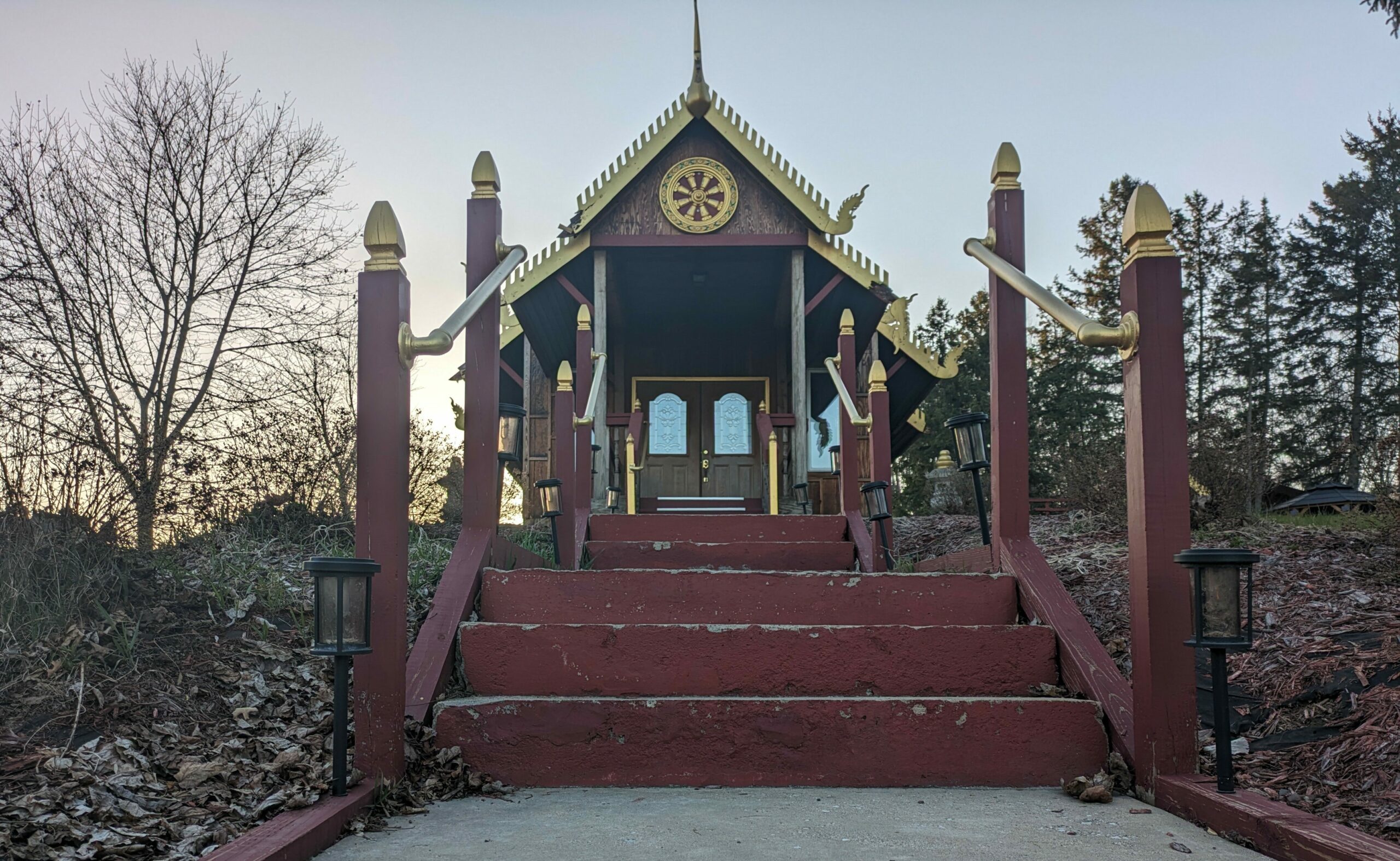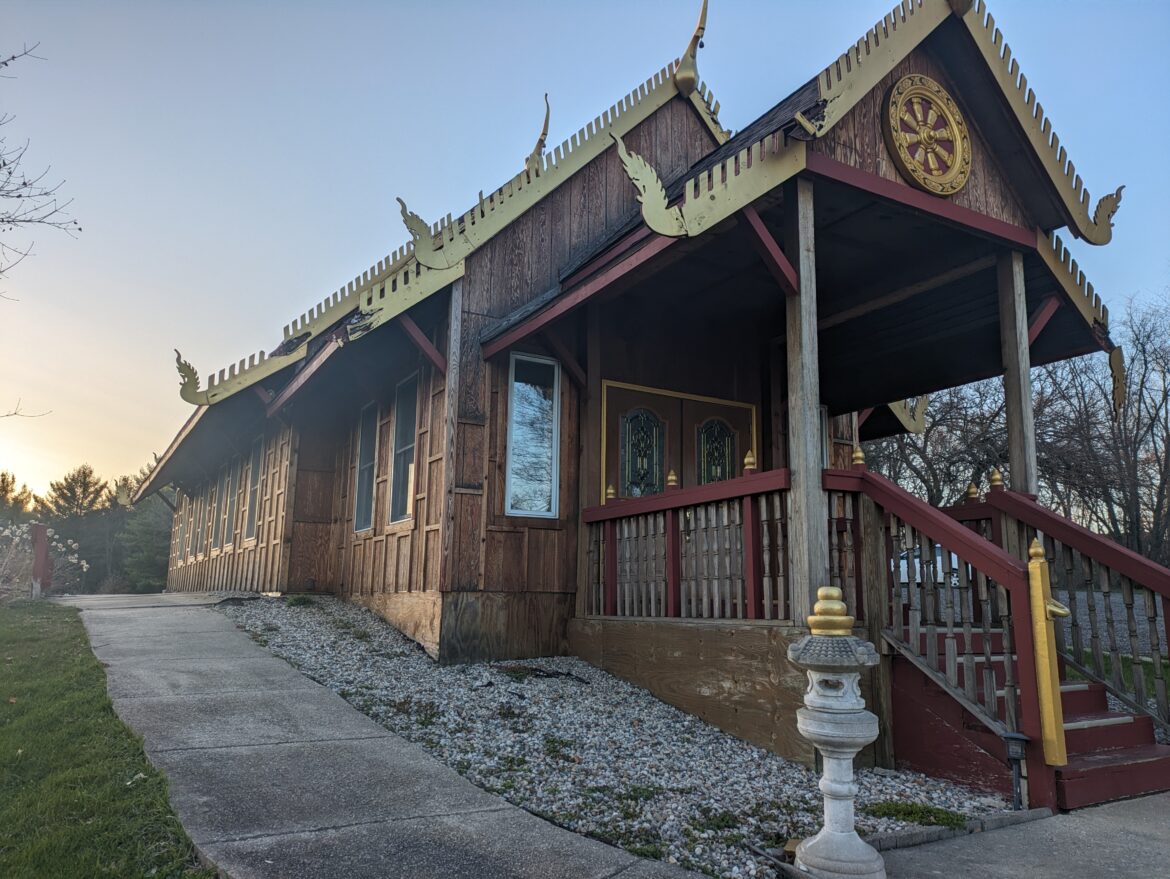April showers bring May flowers and the beginning of the busiest season at Dhammasala Forest Monastery.
The Dhammasala Forest Monastery follows the Dhammayut branch of Theravada Buddhism and offers many services that are open to the public. The monastery conducts daily food offerings and holds Dhamma talks every Saturday. Visitors of all faiths are welcome to walk along the monastery’s nature trails, especially during the flowering spring season.
“There are more people who walk around during the summer when it’s warmer,” said Tan Mahaviro, an ordained monk at Dhammasala. “Once it gets warmer, more people will start to come.”

The warm weather also signals the beginning of the monastery’s retreat season. Private meditation retreats are offered from May until September.
The retreats are solitary endeavors for practitioners to immerse themselves in meditation while surrounded by nature. Retreat-goers are provided with a few necessities and are expected to abide by the eight precepts practiced by Buddhists on holy days during their stay, including observed practices such as abstaining from entertainment. They are also given the unique opportunity to talk to and engage with the monks through counseling and Dhamma talks.

Dhamma talks are weekly lessons, held in the Sala or large temple, and led by the monastery’s monks, who speak about various aspects of Buddhist theology. The monks giving the speeches alternate on a week-by-week basis and all have different topics and themes. These talks are conducted entirely in English and are open to anyone with an interest in learning more about Buddhism.
Tan Ryan said that after the Dhamma talks, visitors are welcome to join the monks for coffee, tea, and conversation, and even pet Dhammasala’s resident Samoyed dog Pui Noon, who Ryan describes as a “walking cloud.”
Pui Noon is far from the only animal inhabitant at Dhammasala. Apart from the many wild animals which live on the property grounds; the monastery is also home to three cats who freely roam the grounds.
The monastery also has daily food offerings. In accordance with Dhammayut tradition, monks at the monastery can only eat once a day and are only permitted to eat offerings donated by lay people.
“People should be considerate of a monk’s diet,” said Mahaviro. In his personal experience, Mahaviro has noticed trends in people’s daily food offerings. Some almsgivers attempt to indulge or impress the monks with sugary desserts or heavy entrees. But this style of offering can prove problematic for monks who suffer from medical conditions like diabetes and hypertension. But Dhammasala is more than just isolated meditation huts and pettable animals, the monastery also offers a community for those interested in Buddhism and spirituality in general.

“I feel like I’m not alone, as we are all speaking the common language of Buddhism,” said Sopheak Chann, a post-doctoral fellow at Michigan State University, who regularly attends the weekly Dhamma talks.
For those who wish to visit the monastery or attend Dhamma talks, information can be found at their website.
